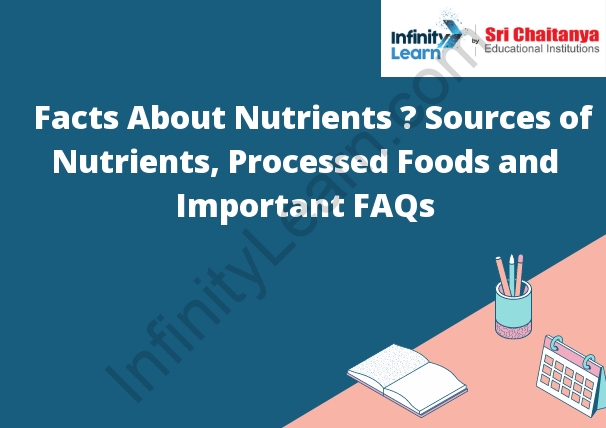Table of Contents
Sources of Nutrients;
There are six main sources of nutrients in the human diet: carbohydrates, proteins, lipids (fats), vitamins, minerals, and water. The body derives energy from nutrients by breaking them down into their component parts, which are called calories. One gram of carbohydrate provides four calories, one gram of protein provides four calories, and one gram of lipid provides nine calories. Vitamins and minerals are essential for the body to perform various functions, but they do not provide energy.

Sugars are Unhealthy
There are many reasons why sugars are unhealthy. For one, sugars are calorie-rich, and consuming too many calories can lead to weight gain. Additionally, sugars can also spike blood sugar levels, which can be harmful for people with diabetes or prediabetes. Sugars can also contribute to tooth decay.
Processed Foods are Inherently Bad
for You
Processed foods are typically high in sodium, sugar, and unhealthy fats. They are also low in fiber and important nutrients. Consuming processed foods can lead to weight gain, diabetes, heart disease, and other health problems.
All Carbohydrates are Not Bad
Carbohydrates are essential for the body to function. They are the main source of energy for the body and are necessary for the brain to function properly. Carbohydrates come in two forms: simple and complex. Simple carbohydrates are found in foods such as fruits, vegetables, milk, and honey. Complex carbohydrates are found in foods such as breads, cereals, pasta, and rice.
All carbohydrates are not bad. It is important to eat a variety of carbohydrates, including both simple and complex carbohydrates, to provide the body with the energy it needs.
Supplements Cannot Supplement Real Food
There is a great deal of confusion over the term “supplement.” A supplement is defined as “a substance that is added to something else to make it more complete or effective.” In the case of food, a supplement would be an additive that is not essential to the nutritional value of the food, but is claimed to improve the food in some way. The term “supplement” is often used to describe vitamins, minerals, and other nutrients that are added to foods, but these are actually called fortificants.
Real food is complete and does not need supplementation. Any purported benefits of supplements are due to the fact that they are providing nutrients that are not present in the real food. For example, a vitamin C supplement may be beneficial if someone is not getting enough vitamin C in their diet. However, the same benefit would not be seen if someone was eating a diet that contained plenty of fruits and vegetables, which are high in vitamin C.
Another problem with supplements is that they can be harmful. Some supplements contain high levels of minerals that can be toxic in large doses. Others contain compounds that have not been adequately studied and may have harmful side effects.
In conclusion, supplements cannot supplement real food. Real food is complete and does not need supplementation. The benefits of supplements are due to the fact that they are providing nutrients that are not present in the real food. Additionally, supplements can be harmful, as they can contain high levels of minerals that can be



